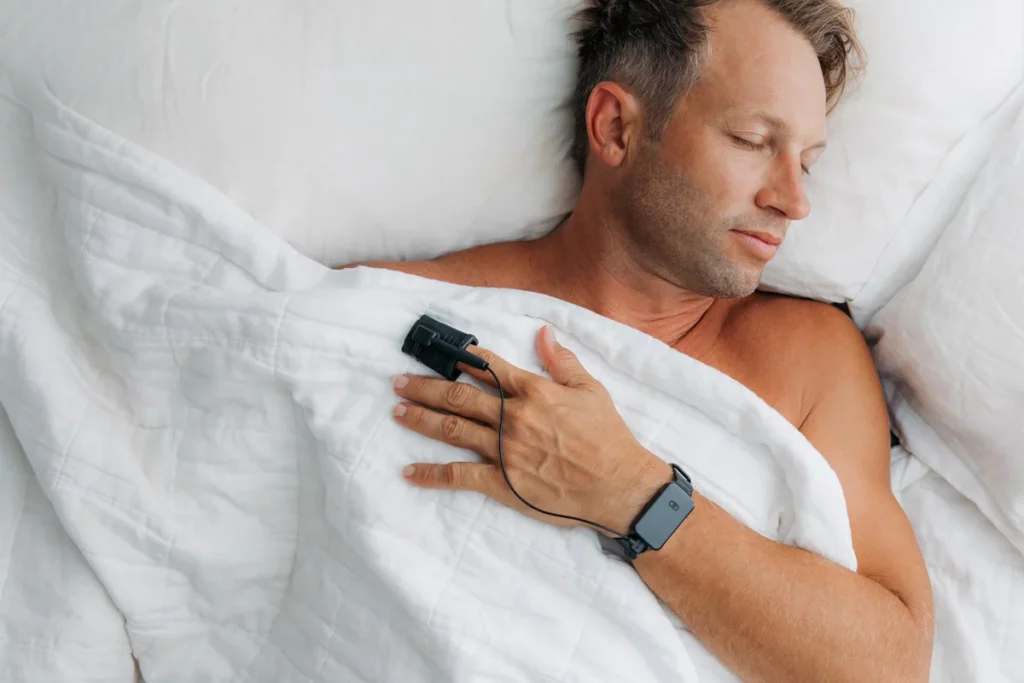Sleep is an essential component of overall health and well-being, yet many individuals struggle with sleep-related issues. In Dee Why, a suburb of Sydney’s Northern Beaches, sleep testing services are available to help diagnose and manage various sleep disorders. This article explores the importance of sleep testing, the types of tests available, and the benefits of seeking help in this area.
The Importance of Sleep Testing
Sleep testing plays a crucial role in identifying sleep disorders that can significantly impact an individual’s quality of life. Conditions such as sleep apnoea, insomnia, and restless leg syndrome can lead to a range of health issues, including fatigue, mood disorders, and cardiovascular problems. By undergoing sleep testing, individuals can gain insights into their sleep patterns and receive appropriate treatment.
Sleep testing Dee Why is an essential resource for individuals struggling with sleep disorders. With various testing options available, individuals can gain valuable insights into their sleep patterns and receive appropriate treatment. The benefits of sleep testing extend beyond just diagnosis; they include improved quality of life and personalised treatment plans that empower individuals to take control of their health.
Understanding Sleep Disorders
Sleep disorders encompass a wide range of conditions that affect the ability to sleep well on a regular basis. Sleep apnoea, characterised by interrupted breathing during sleep, is one of the most common disorders. Insomnia, on the other hand, involves difficulty falling or staying asleep, leading to insufficient sleep. Recognising these conditions is the first step towards effective management.

Other disorders, such as narcolepsy and parasomnias (which include sleepwalking and night terrors), may also require professional evaluation. Understanding the nature of these disorders can empower individuals to seek the help they need. The impact of these conditions can extend beyond the individual, affecting relationships, work performance, and overall well-being. For instance, a person suffering from chronic insomnia may find it increasingly difficult to concentrate at work, leading to decreased productivity and heightened stress levels. This ripple effect underscores the importance of addressing sleep issues promptly and effectively.
Moreover, the advancements in sleep testing technology have made it easier than ever for individuals to undergo assessments in the comfort of their own homes. Home sleep tests can provide valuable data on breathing patterns, oxygen levels, and even heart rates during sleep. Such innovations not only enhance the accuracy of diagnosis but also encourage more people to seek help, as the process becomes less daunting. With a better understanding of their sleep health, individuals can take proactive steps towards improving their sleep hygiene and overall lifestyle, paving the way for a healthier, more fulfilling life.
To read about sleep study click here.
Types of Sleep Testing Available
In Dee Why, several types of sleep testing are available to cater to different needs. These tests can be conducted in a sleep clinic or, in some cases, at home. Each method has its advantages and is designed to provide valuable data about an individual’s sleep patterns.
Polysomnography
Polysomnography is a comprehensive sleep study that is typically conducted in a sleep clinic. During this test, various physiological parameters are monitored, including brain activity, eye movement, heart rate, and breathing patterns. The data collected helps healthcare professionals diagnose sleep disorders accurately. Read more about disorders on http://www2.hawaii.edu/~heiby/overheads_classification.html
This type of testing is particularly useful for diagnosing conditions such as sleep apnoea and narcolepsy. Patients are usually required to spend the night at the clinic, where they are monitored by trained technicians. The results can provide a detailed picture of sleep quality and disturbances.
Home Sleep Apnoea Testing
For those who prefer a more comfortable setting, home sleep apnoea testing is an option. This test involves using portable monitoring devices that can be used in the comfort of one’s own home. While it may not provide as comprehensive data as polysomnography, it is a convenient alternative for diagnosing sleep apnoea.
Home tests typically measure breathing patterns, oxygen levels, and heart rate. They are particularly beneficial for individuals who may find it challenging to sleep in a clinical environment. However, it is essential to consult with a healthcare professional to determine if this testing method is suitable.

Benefits of Sleep Testing
Engaging in sleep testing offers numerous benefits that extend beyond merely identifying sleep disorders. By understanding one’s sleep patterns, individuals can take proactive steps towards improving their sleep quality.
Improved Quality of Life
One of the most significant benefits of sleep testing is the potential for improved quality of life. Individuals who receive a proper diagnosis and treatment for their sleep disorders often report feeling more energised and alert during the day. This improvement can lead to enhanced productivity, better mood regulation, and an overall sense of well-being.
Furthermore, addressing sleep issues can have positive effects on physical health. Quality sleep is linked to a stronger immune system, better weight management, and reduced risk of chronic conditions such as diabetes and heart disease.
Personalised Treatment Plans
Another advantage of undergoing sleep testing is the development of personalised treatment plans. Once a sleep disorder is diagnosed, healthcare professionals can tailor interventions to meet the specific needs of the individual. This may include lifestyle changes, behavioural therapies, or medical interventions such as continuous positive airway pressure (CPAP) therapy for sleep apnoea.
Personalised treatment plans ensure that individuals receive the most effective care possible, increasing the likelihood of successful outcomes. It also empowers patients to take an active role in managing their health.
How to Prepare for Sleep Testing
Preparation for sleep testing is essential to ensure accurate results. Whether undergoing polysomnography or home sleep apnoea testing, there are several steps individuals can take to prepare effectively.
Consultation with a Healthcare Professional
Before undergoing any sleep test, it is crucial to consult with a healthcare professional. They will assess the individual’s symptoms, medical history, and lifestyle factors to determine the most appropriate testing method. This consultation is an opportunity to discuss any concerns and ask questions about the testing process. Click here to find more about symptoms.
Healthcare professionals may also provide specific instructions on how to prepare for the test, including any necessary adjustments to medications or sleep routines.
Preparing for Polysomnography
For those scheduled for polysomnography, it is advisable to avoid caffeine and alcohol on the day of the test. These substances can interfere with sleep patterns and may affect the results. Additionally, individuals should aim to maintain their regular sleep schedule leading up to the test.
On the night of the test, patients should bring comfortable sleepwear and any personal items that may help them feel more at ease. The sleep clinic will provide additional instructions on what to expect during the testing process.
Finding Sleep Testing Services in Dee Why
Dee Why offers various options for sleep testing services, making it accessible for those seeking help with sleep disorders. Local healthcare providers, sleep clinics, and specialised centres are available to assist individuals in their journey towards better sleep.
Researching Local Clinics
When searching for sleep testing services, it is beneficial to research local clinics and read reviews from previous patients. This can provide insights into the quality of care offered and the experiences of others. Many clinics also have websites that detail their services, testing methods, and healthcare professionals involved.
It may also be helpful to ask for recommendations from general practitioners or specialists who can refer individuals to reputable sleep testing facilities.
Insurance and Costs
Before proceeding with sleep testing, individuals should check with their health insurance provider to understand coverage options. Some insurance plans may cover the cost of sleep studies, while others may require out-of-pocket expenses. Understanding the financial aspect can help individuals make informed decisions about their care.
Conclusion
For those experiencing sleep-related issues, seeking help through sleep testing can be a life-changing decision. By prioritising sleep health, individuals can enhance their overall well-being and enjoy the many benefits that come with restful nights.

